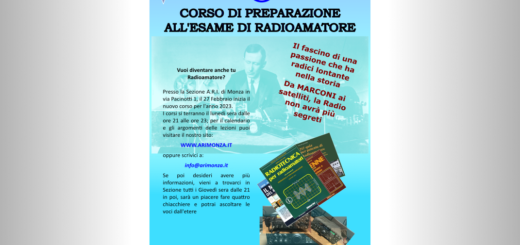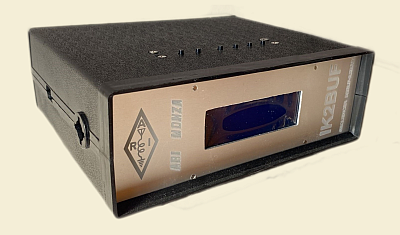contatto 30 Novembre ore 17.02 UTC
ARISS contact planned for schools in Rhode Island, US
An International Space Station school contact has been planned with participants at Bishop Hendricken High School and its sister school, St. Mary Academy – Bay View, Warwick, RI.
The event is schedules on Thursday 30 November 2017 at approximately 17:02 UTC. The duration of the contact is approximately 9 minutes and 30 seconds.
The contact will be a telebridge between IR0ISS and IK1SLD. The contact should be audible over Italy and adjacent areas. Interested parties are invited to listen in on the 145.80 MHz downlink. The contact is expected to be conducted in English.
This telebridge downlink signals between IR0ISS and IK1SLD will be audible in parts of Europe.
Moreover, the event will be webcast on:
https://livestream.com/accounts/9685187/events/7946215
16 students from Bishop Hendricken and its sister school, St. Mary Academy – Bay View, have been chosen to participate in the “Rhode Island Space Chat #2” after submitting questions based on the study of the ISS mission. Hendricken will be the first high school in Rhode Island to host the ARISS event scheduled to take place in the school’s Dr. Daniel S. Harrop Theater in front of a crowd of 350 science and technology students as well as school administrators and local dignitaries.
Founded in 1874, St. Mary Academy – Bay View, located in Riverside, Rhode Island, is an independent Catholic school serving a diverse population with more than 600 girls and young women enrolled in pre-kindergarten through twelfth grade. There are opportunities for students to apply knowledge from their science, technology, engineering, art, and math coursework during internships at local companies. Bay View students and alumnae frequently distinguish themselves through accomplishments in STEAM fields. In 2017, the Academy’s Robotics Team won the Rhode Island championship in the FIRST® LEGO® League Robotics competition and went on to receive a 3rd place at the World Championship.
Bishop Hendricken High School, named for the Most Rev. Thomas F. Hendricken, first Bishop of Providence, opened its doors to 350 students in 1959. This premiere, all-boys Catholic college preparatory high school is located on 34 acres of land in Warwick, Rhode Island. With current enrollment at 940, the school offers five academic levels including a special 8th grade Honors Institute and an Options Program for students with mild to moderate developmental disabilities.
Bishop Hendricken has a rich tradition of attracting gifted scholars, artists and athletes. The school boasts over 500 National Merit and Commended Scholars and is the current home of the reigning U.S. National Academic Decathlon Champions and Rhode Island State Champions from 2011-2017.
Students pride themselves on providing over 42,000 hours of community service annually as they live out Hendricken’s mission to bring each member of their community into a closer relationship with God – Father, Son and Holy Spirit – through the development of the total person – heart, mind, body and soul.
Participants will ask as many of the following questions as time allows:
1. How has your experience in space affected your personal faith or beliefs?
2. How does zero gravity impact the sound of a stringed instrument like a
guitar?
3. Does cell growth become stunted, accelerated, or simply remain constant in
microgravity?
4. How is vaccine drug discovery improved in your microgravity environment
versus a pharmaceutical research lab on Earth?
5. What results from space station research have yielded the greatest impact
on Earth?
6.. How does long exposure to microgravity impact an astronaut’s eyesight and
eye health?
7. Do adrenaline rushes in microgravity cause you to mentally process things
differently?
8. Since your body is better supported in zero gravity, do you expend less
energy and therefore eat less?
9. How do you combat loss of skeletal muscle mass and strength (sarcopenia)
while in orbit?
10. If space tourism begins to take space travel out of the hands of
government, are there major concerns to opening it up to the private
sector?
11. With the human race on the cusp of interplanetary travel, what new fields
of study and skill sets will astronauts need?
12. How do planets and stars look differently from your vantage point?
13. How much is the human aging process impacted after a nine month trip to
Mars?
14. With global challenges like poverty and disasters, why is it important to
spend money on space travel?
15. What earthbound activities do you miss the most while in orbit?
16.. When you aren’t in space, what are your outside interests and hobbies?






